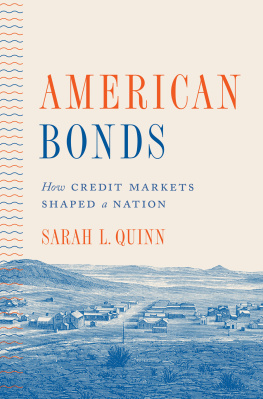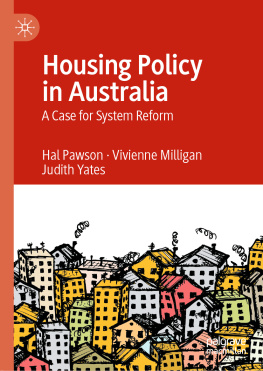DAYS OF SLAUGHTER

DAYS OF SLAUGHTER
Inside the Fall ofFreddie Macand Why It Could Happen Again
SUSAN WHARTON GATES

2017 Susan Wharton Gates
All rights reserved. Published 2017
Printed in the United States of America on acid-free paper
9 8 7 6 5 4 3 2 1
Johns Hopkins University Press
2715 North Charles Street
Baltimore, Maryland 21218-4363
www.press.jhu.edu
A catalog record for this book is available from the Library of Congress
ISBN 978-1-4214-2193-3 (hardback; alk paper)
ISBN 1-4214-2193-3 (hardback; alk paper)
ISBN 978-1-4214-2194-0 (ebook)
ISBN 1-4214-2194-1 (ebook)
A catalog record for this book is available from the British Library.
Special discounts are available for bulk purchases of this book. For more information, please contact Special Sales at 410-516-6936 or specialsales@press.jhu.edu.
Johns Hopkins University Press uses environmentally friendly book materials, including recycled text paper that is composed of at least 30 percent post-consumer waste, whenever possible.
For my old Freddie colleagues
and in memory of
Freddie Mac Interim Chief Financial Officer
David Kellerman
19682009
Justice is turned back, and righteousness stands far away; for truth has stumbled in the public squares.
Isaiah 59:14
Acknowledgments
Bringing a book to lifeones firstis no picnic, nor is it a private endeavor, nor is it done on a whim. When I left Freddie Mac in 2009 shaken and disillusioned, but with a story burning to be told, I never imagined that it would take eight years for Days of Slaughter to be published. We should all be thankful for the delay, as the story greatly benefited from the passage of time, the wise guidance of mentors, and the critical eye of reviewers. Yet the gestation was not so long that stories of misguided public policy, the foibles of leaders, and the dangerous brew of ideology and politics cannot speak to present-day concerns.
I am indebted to a wide range of people, many of whom I will undoubtedly fail to acknowledge as it has been nearly a decade since I began ruminating on this story. Thank you for your ear and early encouragement. Guiding the overall shape and development of the book, writing coach David Hazard lent needed confidence during the long years of marketing the manuscript to scores of uninterested agents and publishers, saying, Someday it will go. And he was right.
My agent, Ron Goldfarb, deftly shepherded the manuscript to success, fully confident in the importance of the work to enhancing public understanding of the collapse of the housing market. His assistant, Gerri Sturman, worked efficiently to push out queries and pester publishers (in a nice way). I could not be happier to work with Kerry Cahill, Elizabeth Demers, Hilary Jacqmin, Mary Lou Kenney, Meagan Szekely, Gene Taft, and others at Johns Hopkins University Press. Copyeditor Kira Bennett Hamilton smoothed countless wrinkles in the text.
I received excellent review and guidance from top scholars and practitioners: Scott Frame, Vanessa Perry, Edward Pinto, Philip Swagel, and Barry Wides. My former old Freddie colleagues provided both insight and encouragement, especially Dave Andrukonis, Cindy Gertz, Richard Green, Alan Hausman, Hyacinth Kucik, Craig Nickerson, Chris Morris, Ann Schnare, and Brian Surrette. I am thankful for the support and prayers of many friends, including Mark and Grace Andringa, Roland and Mary Jo Binker, Kevin and Cheryl Buford, Sue Hardman, Sara Hoyt, Erica Kenney, Nancy Le Sourd, Clancy Nixon, Debbie Rivera, Anjeanette Roberts, Ann Simeone, Phil and Deonne Snare, Martin and Iveta Steinhobel, Eldon Stoffel, Kim and Penelope Swithinbank, Katie Wang and the sweet women in her destiny prayer group, Scott Ward, and John and Susan Yates.
Over the years I have been challenged by passionate policy discussions with my very smart siblings, David and Betsy Wharton, who will recall our fathers sad finale with another big corporation. And for sustaining me through long months of writing and difficult setbacks, I am forever grateful to my steady and long-suffering husband, Peter, and our three children, none of whom wants a career in finance. Ultimately, I give thanks to God: muse, friend, goad, and joy. All errors are mine. All glory his.
DAYS OF SLAUGHTER
PROLOGUE
ACKNOWLEDGING THE OBVIOUS
Early one Monday morning in late August 2008, I walked into another vice presidents office and shut the door. I needed to know how bad things were. He was more knowledgeable about where Freddie Mac stood in the capital sense, that is, whether the company was still solvent.
I cleared my throat. There is a lot of talk going around, I said softly. Is it true what Im hearingabout conservatorship?
He was staring at his computer. Then he turned and faced me hard.
Were in a shit-load of trouble. He returned to the screen.
My throat felt dry. Oh was all I managed to say. Years of bad premonitions rose like ghosts in my head.
Less than two weeks later, in early September 2008, Freddie Mac was taken away from its shareholders and placed in government conservatorship along with its sibling, Fannie Mae. Both government-sponsored enterprises, or GSEs, were on the brink of insolvency as a result of mounting losses on higher-risk mortgages and related mortgage securities and dwindling capital. The specter of a sudden collapse of confidence in the twin pillars of the US housing market loomed. Policy makers feared that the GSEs could not refinance the hundreds of billions in GSE debt securities sitting in investment portfolios around the world. To stave off a disaster, the US government essentially nationalized Freddie Mac and Fannie Mae.
Nine years after those fateful days, the US housing market continues to stabilize. Firmly under government control, the GSEs still play a vital role in attracting mortgage money from around the world to fund residential homes and apartment buildings. In fact, because so many private sources of mortgage money have vanished, the GSEs are even more critical to the nations housing markets than before. But it is a fragile arrangement. For many complicated reasons, which this book hopes to illuminate, lawmakers have yet to agree on a comprehensive reform plan for putting the nations housing finance system, with or without the GSEs at its core, on a more stable footing. Yet the task is critical.
From 2008 to 2012, taxpayers provided $187.5 billion to keep the GSEs afloat while massive losses on defaulted mortgages ran through their balance sheets. In return, the GSEs had paid $241.2 billion in dividends to their senior preferred shareholder, the US Treasury, as of December 31, 2015.
Although the GSEs have repaid their emergency infusionsand then somethey remain very much under government control, even as other financial bailout recipients have been released from their government obligations. This stalemate greatly aggravates current GSE shareholders, many of whom purchased the grossly undervalued stocks in recent years, in hopes of a GSE revival and massive multi-billion-dollar windfall. Since 2013, myriad shareholder lawsuits have been filed against the government, alleging unlawful takings of GSE profits. Bringing their case to all three branches of government, an unlikely coalition of hedge funds, banking trade groups, and housing trade groups have called for the government to recapitalize and release the GSEs from their purgatory status.
Next page







